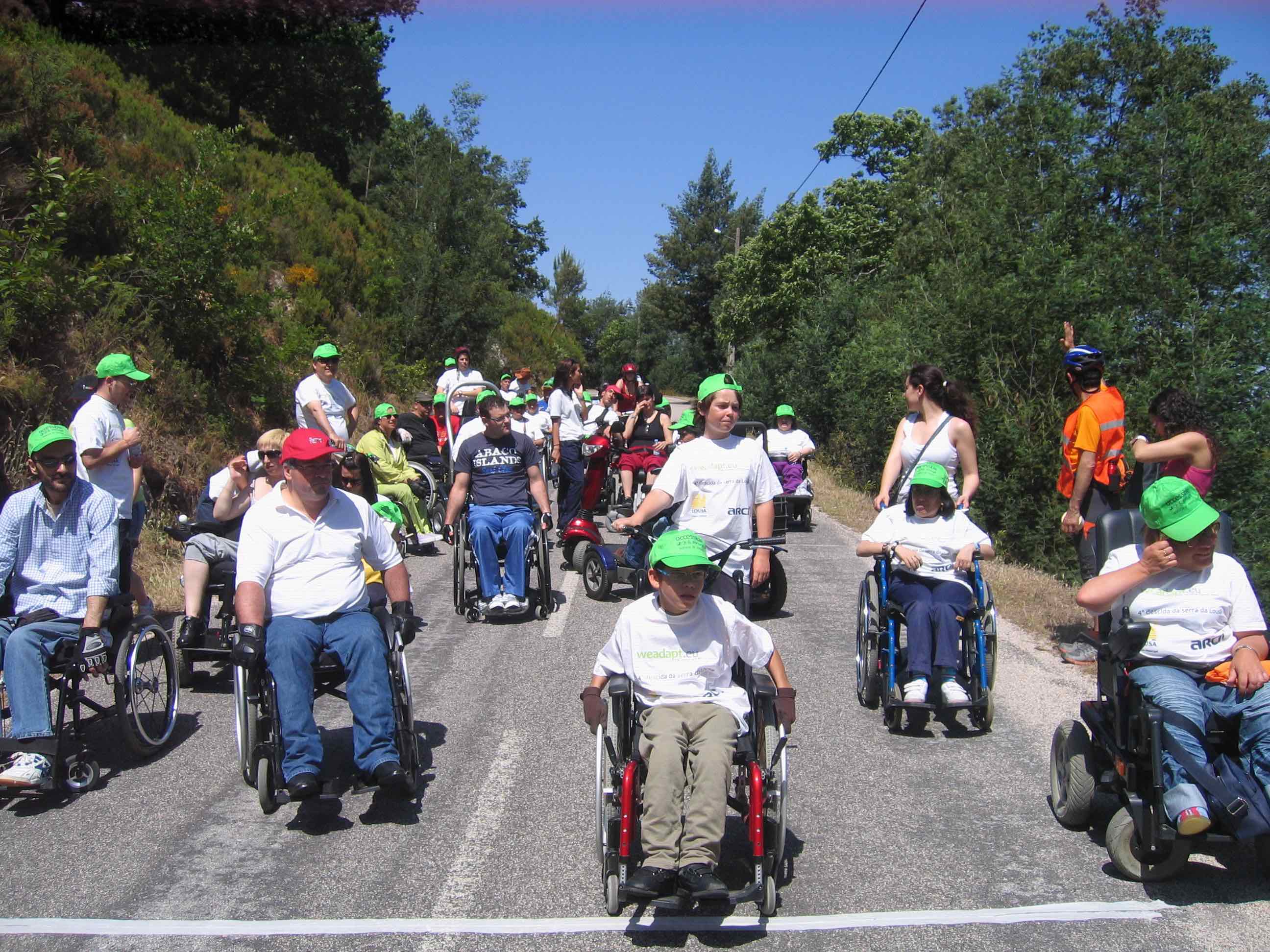Lousã, Portugal
Share on social media
Lousã, a small country town in the north of Portugal, is included here as an "Accessible Tourism Destination” due to the project conducted in this town and region in 2008-2011.
 Photo. Lousã wheelchair downhill event, 2012. Accessible Portugal
Photo. Lousã wheelchair downhill event, 2012. Accessible Portugal
Lousã, a small country town in the north of Portugal, is included here as an "Accessible Tourism Destination” due to the project conducted in this town and region in 2008-2011.
The project was an important first step of providing accessible tourism services from a destination perspective in Portugal and sought to develop a model for other towns to follow. One of the key aspects of the project was the collaborative approach that sought to include a diverse range of stakeholders in order to make the entire tourism supply chain accessible. This approach engaged the local authorities, private consultancies, organisations for people with disabilities as well as private businesses in different sectors of the tourism market. The organizational aspects of the projects were highly innovative and well-suited for creating an unbroken supply chain. In particular, the project produced an innovative approach to networking between different actors who both compete and collaborate with one another.
The key driver for this project was to exploit the economic potential of accessible tourism at a destination that was well-suited for nature, rural and sports tourism. In addition, the town had a long-standing tradition of including people with disabilities into society and was one of the first towns in Portugal to appoint an Ombudsman for Disabilities. Accessibility was in this vein a well-known concept already at the start of the project, which is believed to have had a positive influence on the project development and outcomes.
It is difficult to evaluate whether the project was successful in achieving its main goal of harnessing the market potential of accessible tourism. In particular, the economic crisis seems to have a major impact on the demand from tourists with accessibility needs, while from a supply perspective many of the planned adaptations works by both public and private sector actors have been put on hold. Nevertheless, the project has been instrumental in raising the importance of accessible tourism in Portugal as well as having developed some interesting approaches on how to encourage the development of an accessible destination.
Download the Lousã Accessible Tourism Case Study in PDF format, produced by ENAT and Partners for the European Commission (2015).
